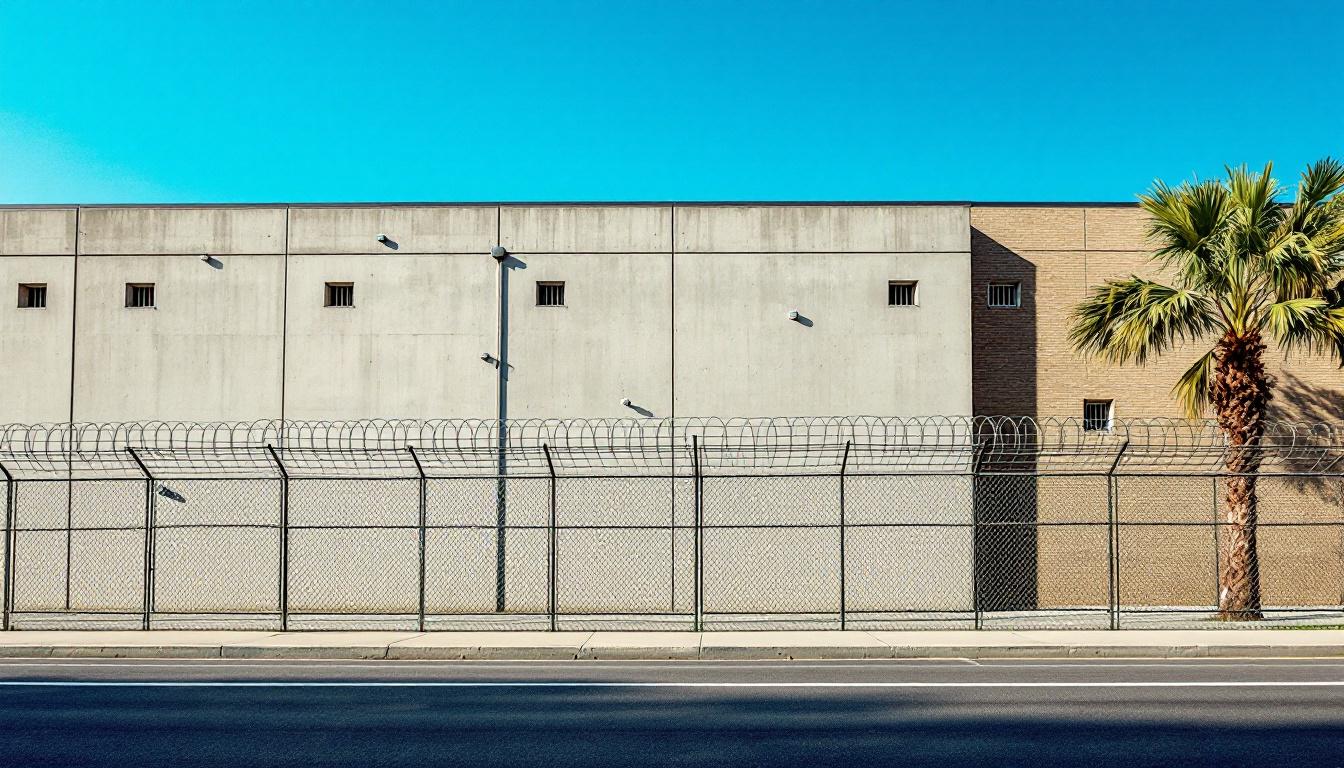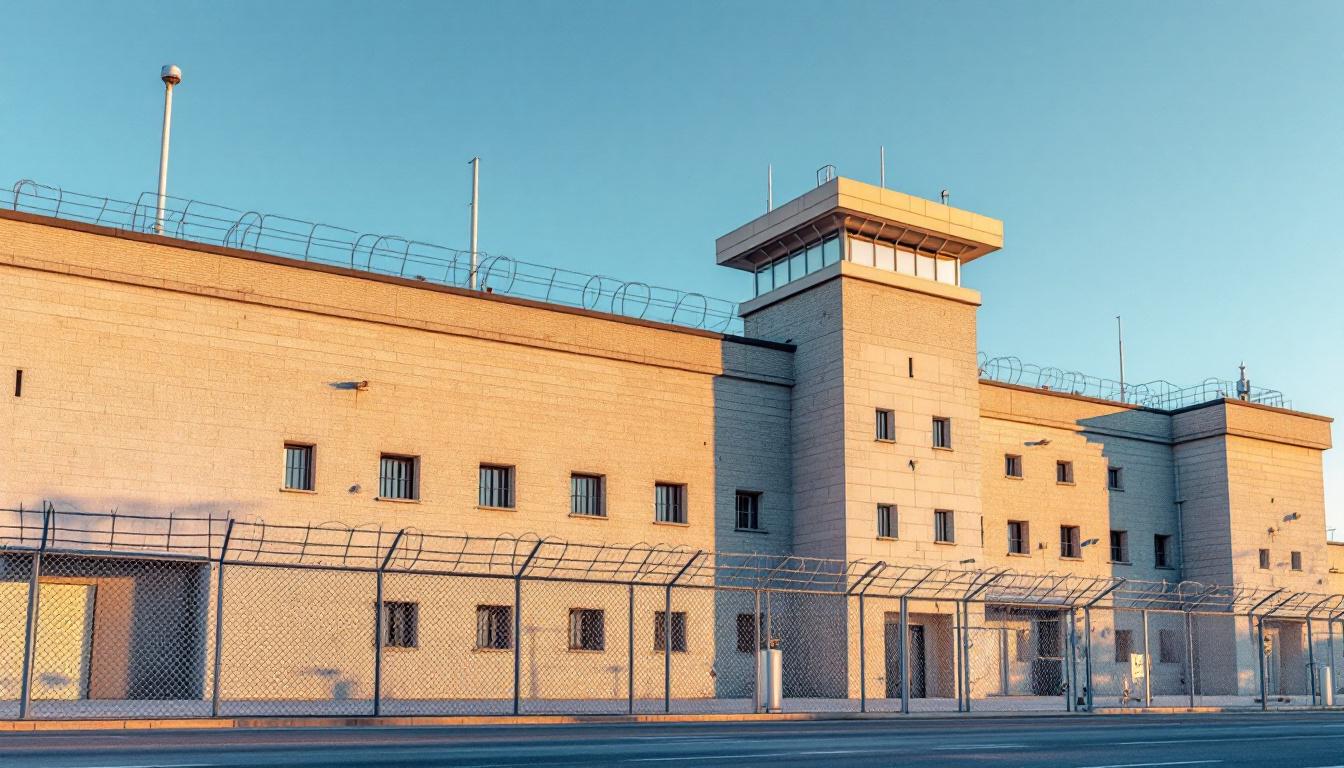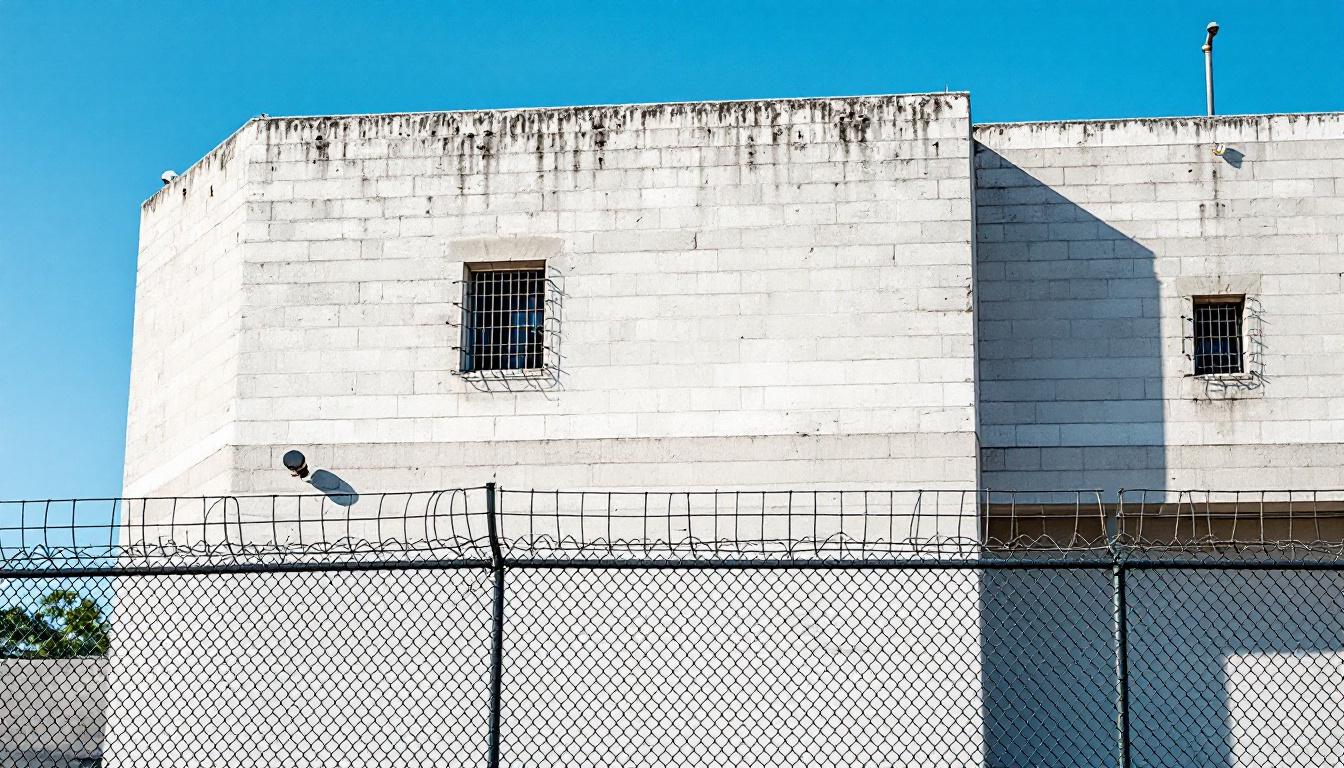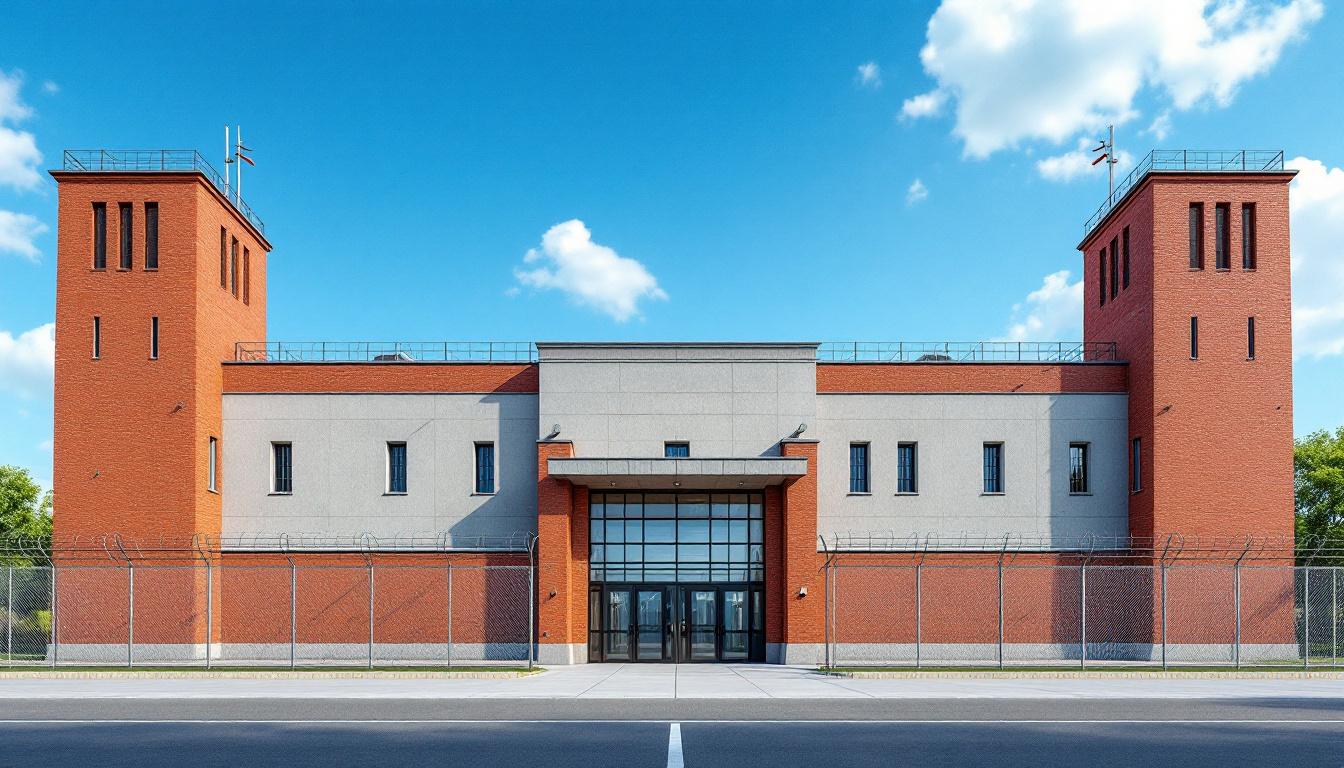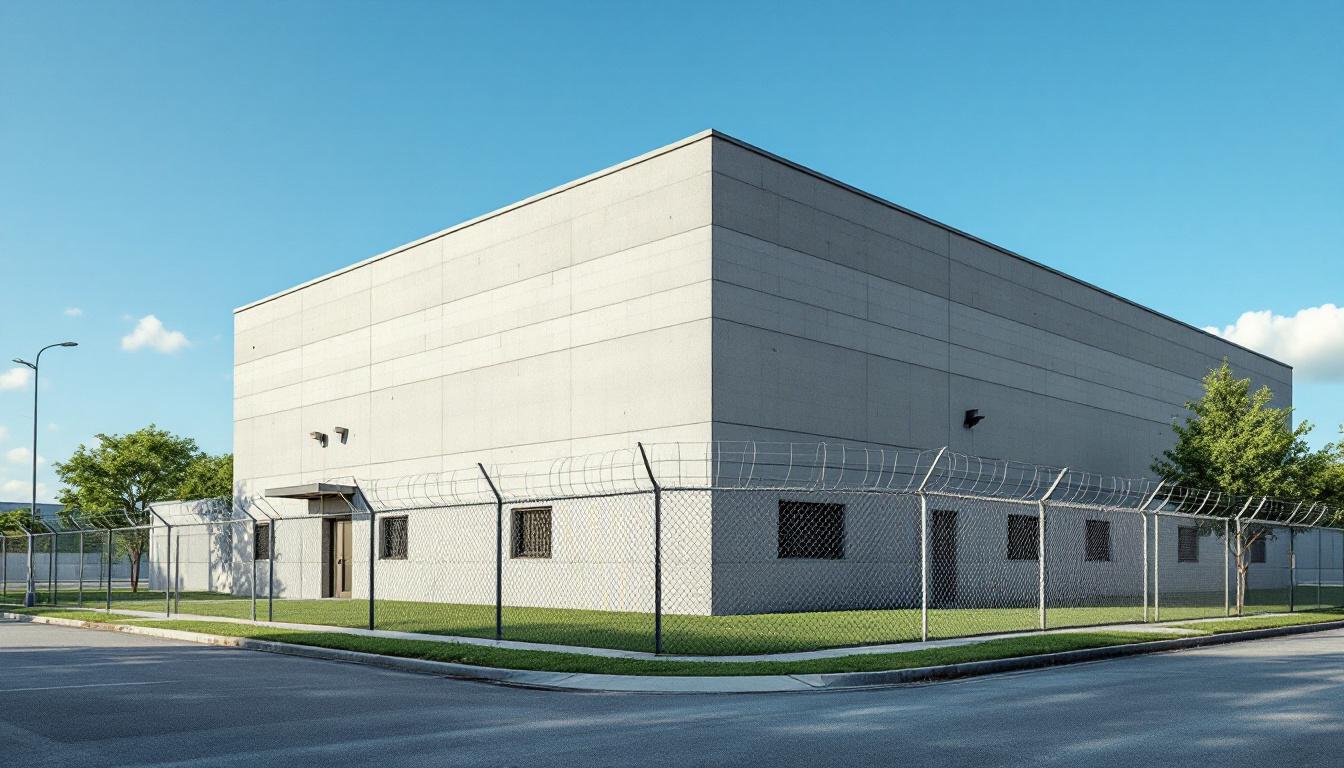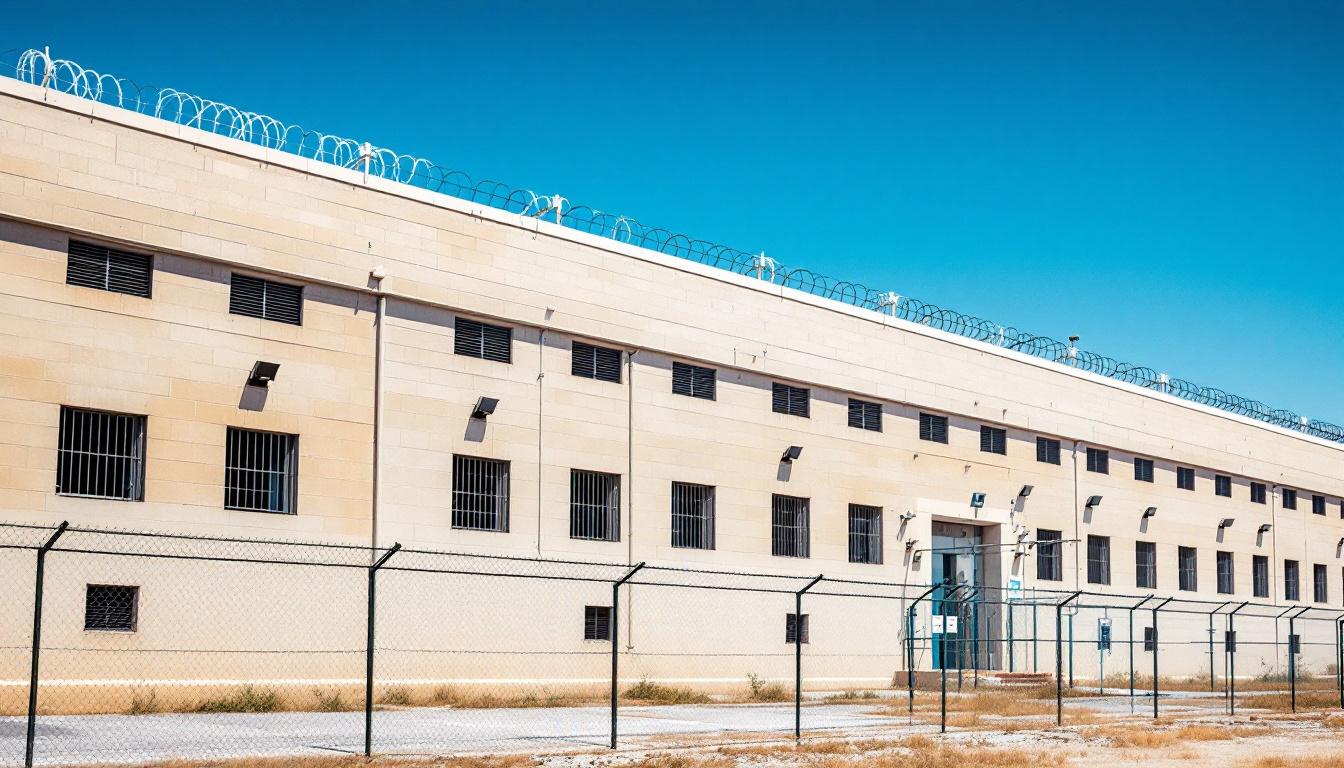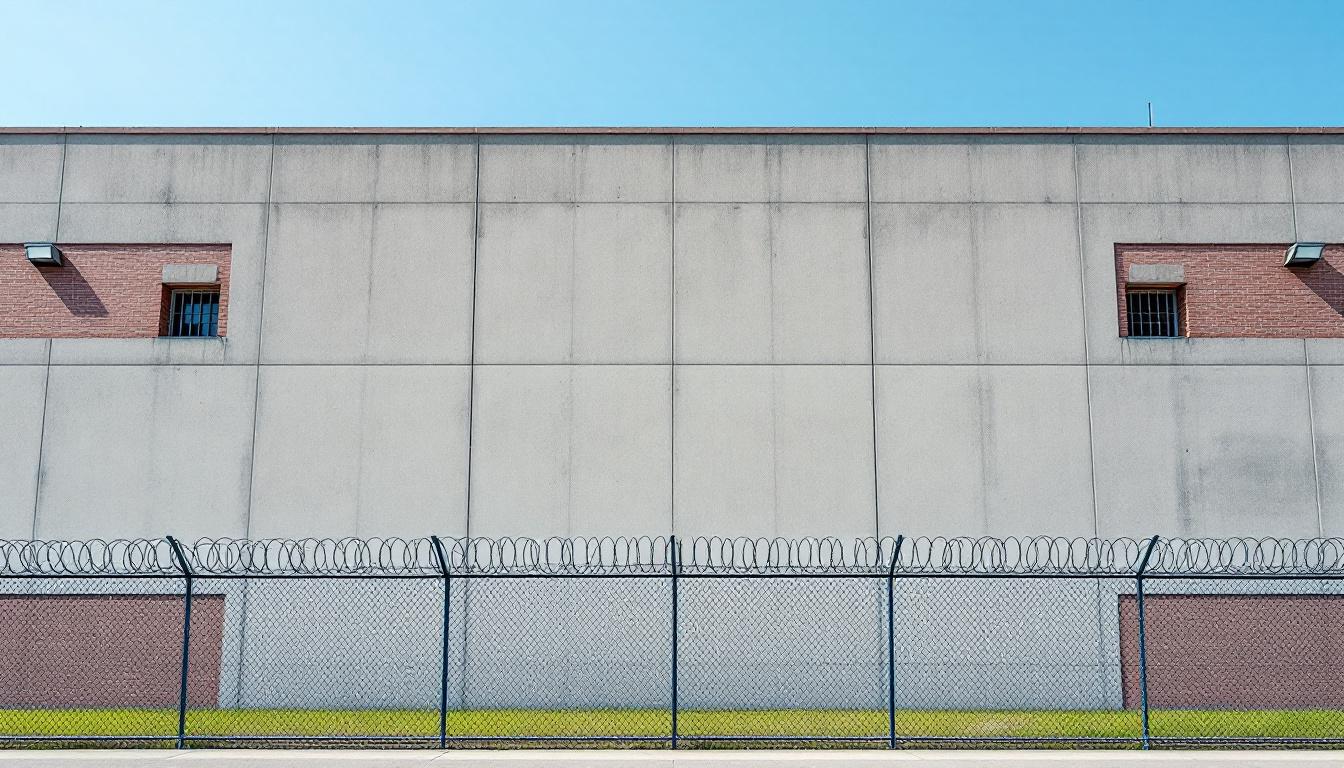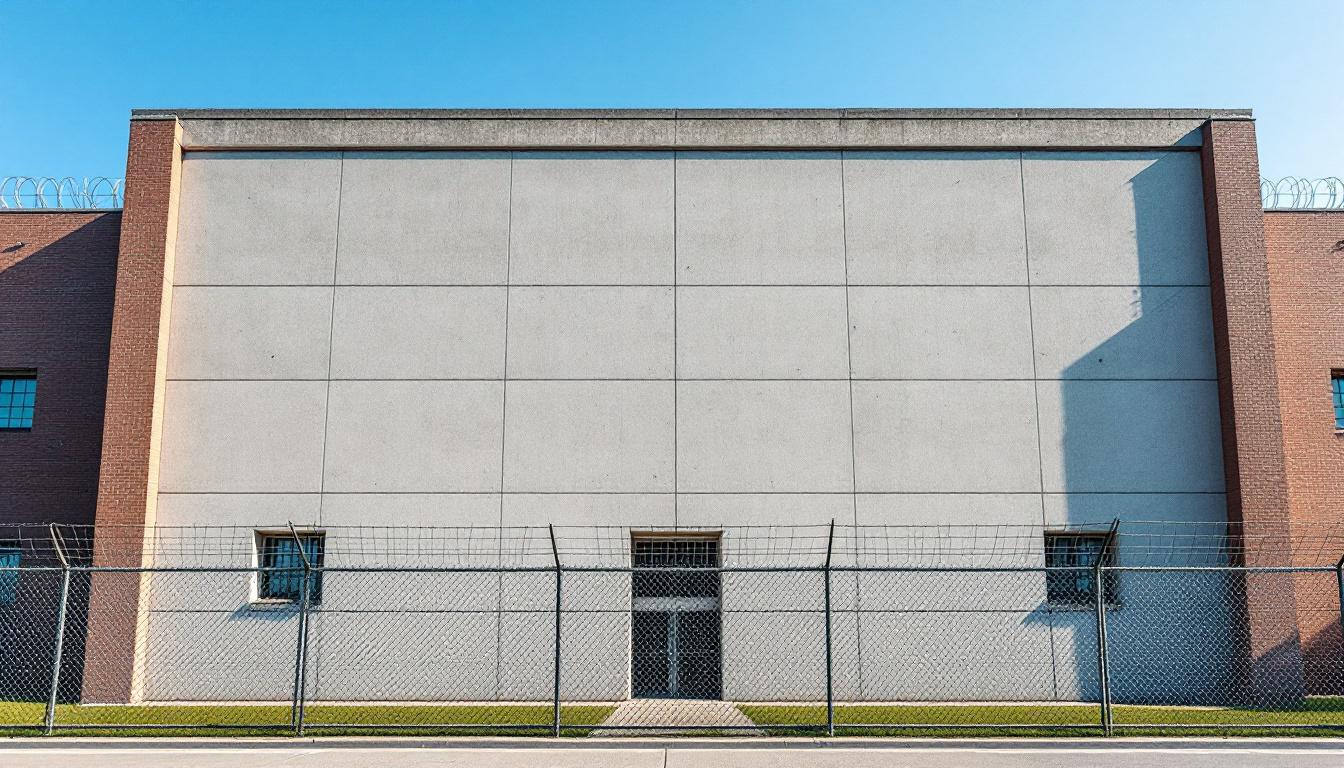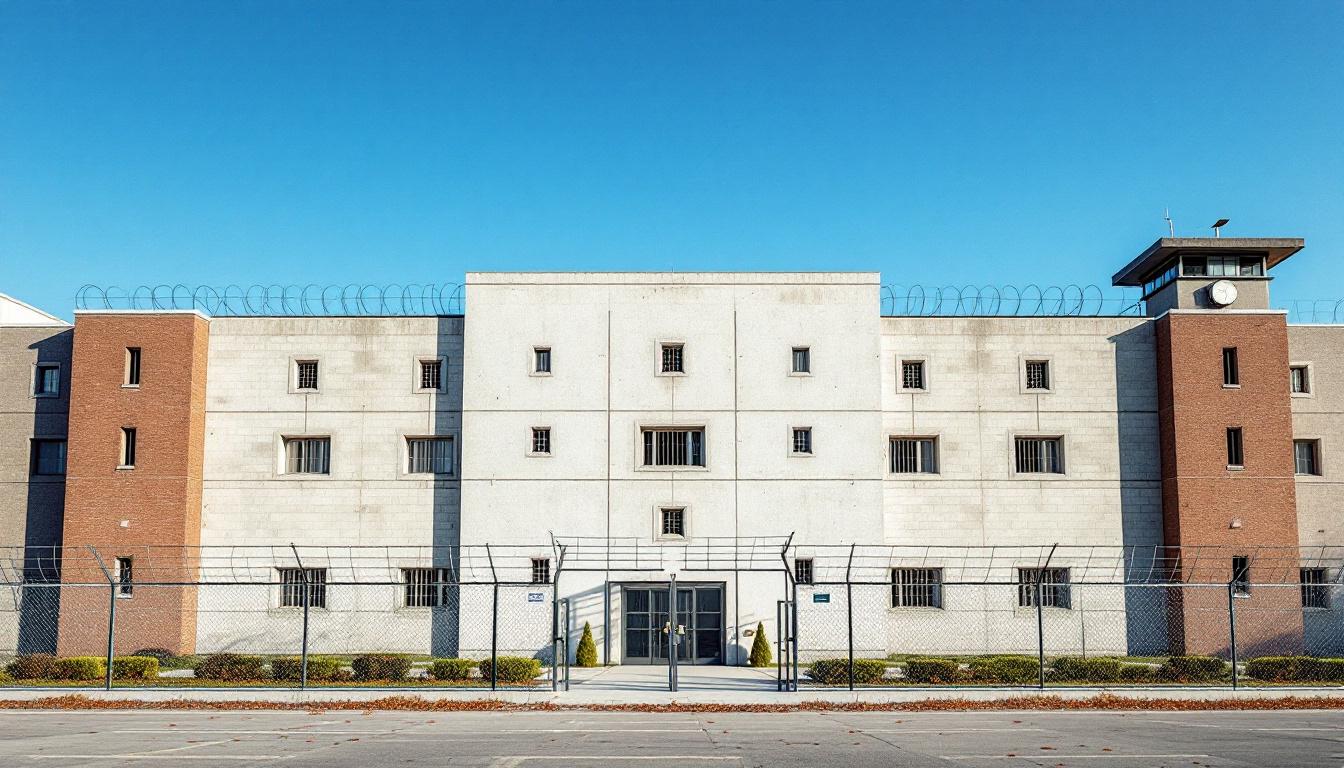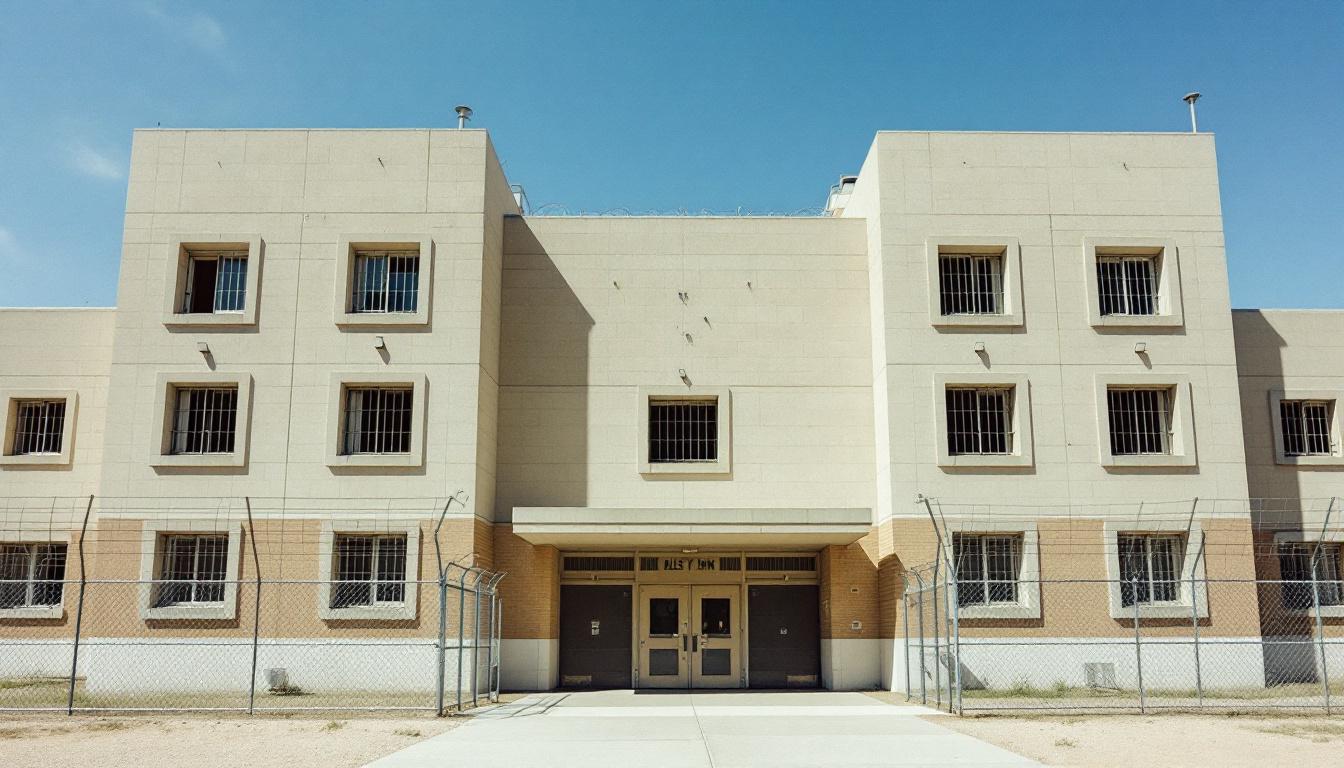
Quick Navigation
How to contact an inmate at Pennington County Jail
This comprehensive guide will walk you through how to connect with an inmate at Pennington County Jail. Follow the steps below to find an inmate and send letters and photos:
- Search for the inmate using our search tool below
- Create your account or log in to Penmate
- Write your message (up to 6,000 characters)
- Send instantly - inmates receive printed copies daily
Find an Inmate
Search for an inmate to start communicating today
Tip: You can search by first name, last name, or inmate ID number
To contact a person at Pennington County Jail start by searching for the person on the official facility website. Perform a search by following these steps:
- Step 1: Enter their first name and last name into the search form and click "Search"
- Step 2: Locate their inmate record
- Step 3: Write down their Inmate ID and any housing information provided
Important! Be sure to enter the person's full name. Nicknames should not be used.
How to Send Messages to Inmates

You can use your phone or computer to send emails, letters, and photos to an inmate. Messages are sent electronically to inmate tablets or kiosks at the facility. If you would like to send a message, start by searching for an inmate at Pennington County Jail.
Sending Photos and Postcards

A great way to send love and support to a loved one at Pennington County Jail is to send photos and postcards. It only takes a few minutes to send photos from your phone and it makes a huge difference. You can also mail postcards with words of support and inspiration, or design your own postcard for special moments like birthdays and holidays.
Important! Be sure not to send any explicit photos or they may not be approved by the facility. You can also use a photo printing app like Penmate to make sure your photos are printed at the correct size (4x6 or 3x5) and are mailed according to the rules and regulations of Pennington County Jail.
Frequently asked questions about Pennington County Jail
-
How long does it take to deliver a message?
If you're sending an email message your letter is usually delivered within 24-48 hours. For messages sent via mail you should expect delivery within 3-7 days. All messages will need be approved by Pennington County Jail.
-
How much does it cost to send a message to Pennington County Jail?
You can send a message free using your phone or mail a message via USPS for the price of a $0.60 stamp and envelope. You can also purchase credits or e-stamps from services starting at $1.99.
-
What services can I use to contact an inmate at Pennington County Jail?
Penmate
You can use Penmate to send letters and photos to an inmate from your phone. It's an easy way to stay in touch during your loved one's incarceration. Use the inmate locator to find an inmate's location and contact information, then you can send messages within a few minutes.
Securus messaging
Securus may be another option for communicating with an inmate at Pennington County Jail. You can create a friends and family account and purchase credits to send messages. All messages will be reviewed and must be approved by the facility.
JPay
Some county jails and state prisons may support sending messages with JPay. You must register an account with the system, find your loved one, and purchase stamps to send messages. For some locations you can also attach photos.
Smart Jail Mail
You may also check if Smart Jail Mail is available at Pennington County Jail. Smart Jail Mail is operated by Smart Communications and has contracted with some state and county jails. After purchasing credits, your messages and photos are sent to the facility, printed out, and then handed out to your loved one.
-
What is the mailing address of Pennington County Jail?
Mailing address:
Pennington County Jail
307 St Joseph St
Rapid City, SD 57701
Phone: (605) 394-6116Business hours:
- Monday: 8:00 AM – 5:00 PM
- Tuesday: 8:00 AM – 5:00 PM
- Wednesday: 8:00 AM – 5:00 PM
- Thursday: 8:00 AM – 5:00 PM
- Friday: 8:00 AM – 5:00 PM
- Saturday: Closed
- Sunday: Closed
-
What are the visiting hours at Pennington County Jail?
Visiting hours at Pennington County Jail vary by housing unit and security level. Generally, visits are scheduled on weekends and holidays, with some facilities offering weekday visits. Contact the facility directly at (605) 394-6116 or check their website for the current visiting schedule. Visits typically last 30-60 minutes and must be scheduled in advance.
-
What items are prohibited when sending mail to Pennington County Jail?
Prohibited items typically include: cash, personal checks, stamps, stickers, glitter, glue, tape, staples, paperclips, polaroid photos, musical or blank greeting cards, hardcover books, magazines with staples, and any items containing metal or electronics. Only send letters on plain white paper with blue or black ink. Photos must be printed on regular photo paper (no Polaroids). Always check with Pennington County Jail for their specific mail policies.
-
How do I send money to an inmate at Pennington County Jail?
You can send money to an inmate at Pennington County Jail through several methods: 1) Online using JPay, Access Corrections, or the facility's approved vendor, 2) Money orders mailed directly to the facility with the inmate's name and ID number, 3) Kiosks located in the facility lobby, or 4) Over the phone using a credit or debit card. Fees vary by method, typically ranging from $2.95 to $11.95 per transaction.
-
Can I schedule a video visit with an inmate at Pennington County Jail?
Many facilities now offer video visitation as an alternative to in-person visits. At Pennington County Jail, video visits may be available through services like Penmate, Securus Video Connect, GTL, or ICSolutions. Video visits typically cost $10-20 for 20-30 minutes and must be scheduled in advance. You'll need a computer or smartphone with a camera and reliable internet connection. Contact the facility for their specific video visitation policies and approved vendors.
-
What identification do I need to visit an inmate at Pennington County Jail?
All visitors must present valid government-issued photo identification such as a driver's license, state ID, passport, or military ID. Minors must be accompanied by a parent or legal guardian who can provide the minor's birth certificate. Some facilities require visitors to be on the inmate's approved visitation list, which may require a background check. Contact Pennington County Jail for specific ID requirements and visitor approval procedures.
-
How can I find out an inmate's release date?
To find an inmate's release date at Pennington County Jail, you can: 1) Use the online inmate search tool if available, 2) Call the facility's records department, 3) Contact the inmate's case manager or counselor, or 4) Have the inmate provide this information during a call or visit. For privacy reasons, some facilities only release this information to immediate family members.
Facility Overview
Contact Information
Pennington County Jail307 St Joseph St
Rapid City, SD 57701
Phone: (605) 394-6116
Official Website
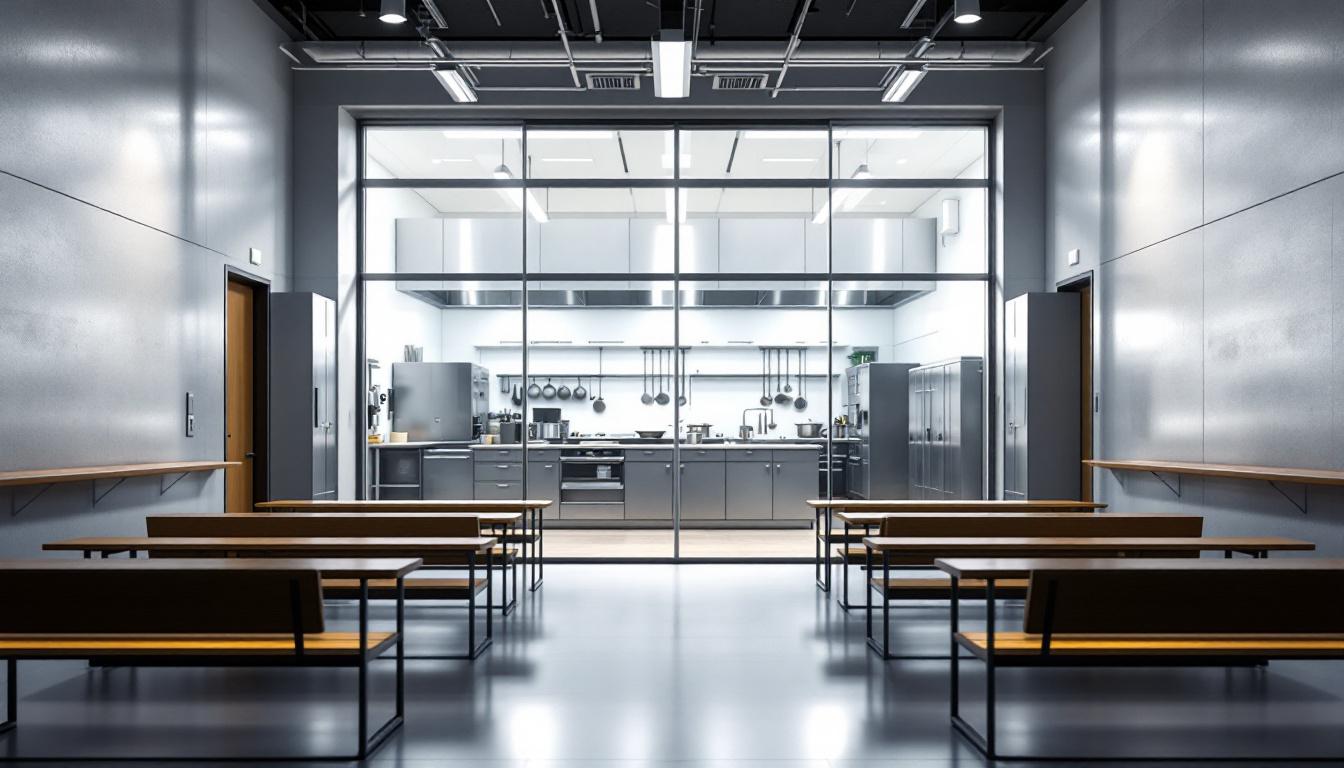
About Pennington County Jail
Community safety and rehabilitation intersect at the Pennington County Jail, SD, where collaborative partnerships with local organizations help address the complex needs of individuals within the correctional system. Serving the greater Rapid City area, this SD correctional facility operates as an integral component of the region's public safety infrastructure, working alongside courts, law enforcement, and community service providers to create pathways toward positive outcomes. The facility's approach emphasizes connecting inmates services with broader community resources, recognizing that effective rehabilitation often extends beyond institutional walls.
Through partnerships with local agencies and service providers, the county jail typically offers programming designed to address underlying factors that may contribute to criminal behavior. These collaborative efforts may include educational opportunities, substance abuse support, mental health resources, and job readiness preparation. The facility generally works to maintain connections between individuals and their families, understanding that strong community ties often support successful reintegration. Located in South Dakota's Black Hills region, the jail serves communities throughout Pennington County, adapting its services to meet the diverse needs of both urban Rapid City residents and those from surrounding rural areas.
The facility's role within South Dakota's correctional system extends beyond temporary housing, as staff typically coordinate with probation services, treatment providers, and social service agencies to develop comprehensive support plans. This collaborative approach often includes pre-release planning that connects individuals with housing assistance, employment resources, and ongoing support services available throughout the Rapid City area and broader Pennington County region.
Programs & Services
Personal growth and skill development form the cornerstone of rehabilitation efforts, with inmates having access to a comprehensive range of services designed to address various aspects of their reentry preparation. The facility typically emphasizes a holistic approach to inmate development, recognizing that successful reintegration requires addressing educational gaps, developing marketable skills, and working through underlying behavioral patterns. This multifaceted strategy often includes both structured learning opportunities and therapeutic interventions that help participants build the foundation for positive life changes.
Educational services may provide inmates with opportunities to complete their high school equivalency credentials or pursue adult basic education coursework. Civic education components often help participants understand their rights and responsibilities as community members, covering topics such as voting procedures, legal obligations, and civic engagement. Also available are vocational training services that typically focus on developing practical job skills in various trades and industries. These hands-on learning experiences may include training in areas such as construction, food service, or maintenance work, helping inmates build marketable skills that can support their employment goals upon release.
Work programs within the facility often provide inmates with structured opportunities to develop workplace habits and gain practical experience in various operational roles. Chaplaincy programs may offer spiritual guidance and support services for inmates seeking faith-based resources during their incarceration. Also integrated into the facility's offerings are therapeutic services, including cognitive behavioral therapy sessions that help participants identify and modify problematic thought patterns and behaviors. Dual diagnosis treatment services typically address the complex needs of inmates dealing with both substance abuse issues and mental health challenges, providing specialized support for this vulnerable population.
Daily Life & Visitation
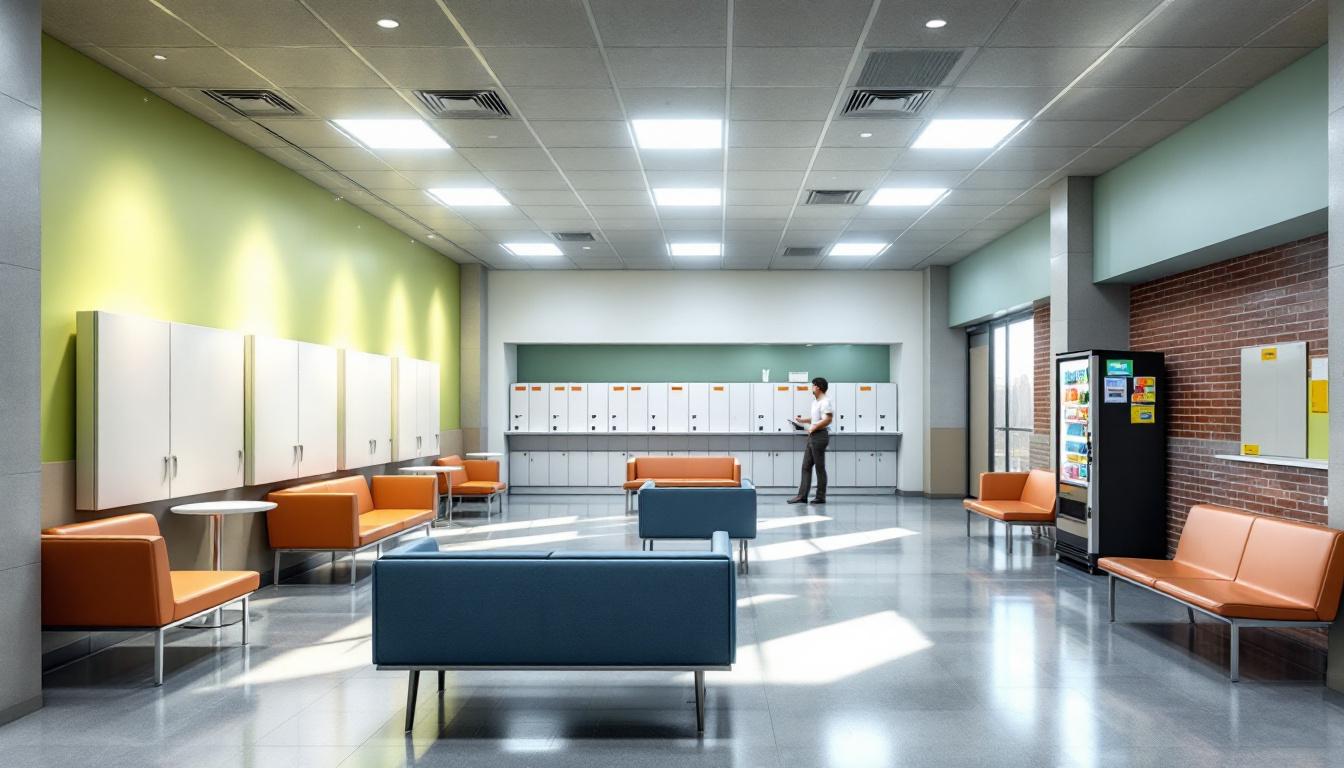
The concrete walls and metal fixtures of Pennington County Jail create a structured environment where every aspect of daily life follows established routines. Inmates adapt to this institutional setting through consistent schedules that begin early in the morning with count procedures and meal service. Today's routine typically mirrors yesterday's, providing inmates with predictable patterns they can rely on. The facility maintains order through regularly scheduled activities that help inmates adjust to their temporary living situation.
Housing units at the jail generally accommodate multiple inmates in shared cells or dormitory-style arrangements, depending on classification levels and available space. Living accommodations may include basic furnishings such as bunks, storage areas for personal property, and shared bathroom facilities. Inmates typically receive three meals daily in designated dining areas or housing units, with menus that meet basic nutritional requirements. The commissary system usually allows inmates to purchase additional food items and personal care products, helping them maintain some control over their daily needs.
Also important to daily life are the various programs and activities that provide structure beyond basic housing needs. Recreation opportunities may include access to dayrooms, television viewing, and limited exercise periods when space permits. Work assignments within the facility often provide inmates with purposeful activities and may include kitchen duties, cleaning responsibilities, or maintenance tasks. However, family connections remain crucial for adaptation, with visitation policies typically allowing scheduled visits and phone calls to help inmates maintain relationships with loved ones. These communication options generally provide emotional support that helps inmates cope with the challenges of incarceration while awaiting court proceedings or serving shorter sentences.
Ready to Connect?
Start communicating with your loved one today
Search for an Inmate
